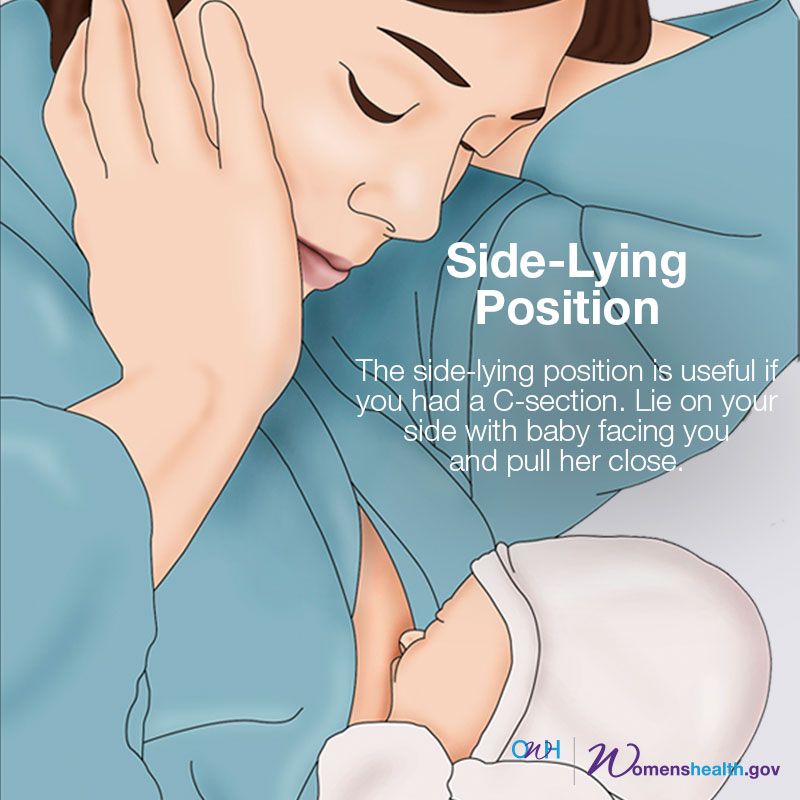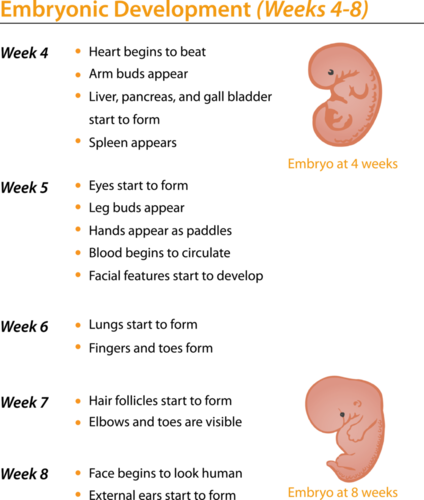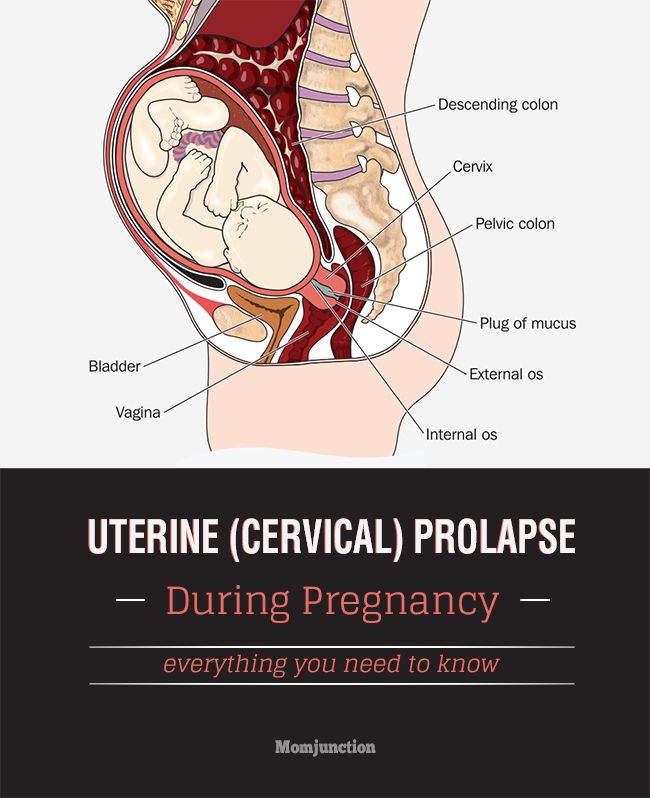What side to lay on when pregnant
Right Side vs. Left Side, More
From steering clear of your favorite contact sports to shunning certain foods, the do’s and don’ts list of pregnancy can be a bit overwhelming.
And as your belly grows week after week, you may be adding sleep positions to your list of concerns.
Here’s some help wading through the myths and facts related to sleep positions during pregnancy and how the way you rest affects the health of your baby and you.
Related: 11 foods and beverages to avoid during pregnancy
Doctors generally recommend sleeping on your side during pregnancy, especially as time goes on.
Why is this exactly? It boils down to blood flow. As the fetus gets bigger, there is greater chance of compression of the blood flow to the uterus.
However, doctors still continue to tilt patients when they are lying down during a cesarean delivery, commonly called a c-section, or when they are in labor with abnormal heart rhythms.
A 2019 review of medical studies suggests that sleeping on your back carries risks, but it doesn’t seem to matter whether you sleep on your right or left side.
These studies do have some flaws, though. Third trimester pregnancy loss is very uncommon. Therefore, there aren’t many cases from which to draw conclusions.
Additionally, it’s difficult to determine exactly when the fetus passed away and whether there were other factors involved. It can be challenging to pinpoint what is occurring in utero without monitoring.
The study did find, however, that there was an increased risk of stillbirth for back sleepers after 28 weeks.
There’s a lot of mixed data on whether lying flat on your back during pregnancy contributes to an increased risk of stillbirth.
A 2019 study of about 800 women for up to 30 weeks of pregnancy examined the sleeping positions of those who experienced stillbirths.
The researchers found no association between those who reported sleeping on their back or a non-left side sleeping position.
Currently, only a limited number of studies are available on this topic. More research is needed to be certain whether or not there is an association between stillbirths and sleeping positions up to 30 weeks of pregnancy.
Left side
Sleeping on your left side is often referred to as the “ideal” scenario during pregnancy.
Positioning yourself on the left side of your body allows for optimal blood flow from the inferior vena cava (IVC).
This large vein runs parallel to your spine on the right side and carries blood to your heart and, in turn, to your baby.
Sleeping on your left side also takes the pressure off your liver and your kidneys. This means more room to function properly, helping with swelling issues in your hands, ankles, and feet.
Right side
So, if the left side is ideal — should you avoid the right side? Not necessarily.
That 2019 review showed equal safety with sleeping on the left and right sides. There’s a slight risk of compression issues with the IVC when you sleep on the right, but it’s mostly a matter of where you’re comfortable.
A note about baby’s sex
You may have heard that your sleep side indicates the sex of your baby. This is just an urban legend. There are no studies to suggest that sleep position has any correlation to the sex of your baby.
This is just an urban legend. There are no studies to suggest that sleep position has any correlation to the sex of your baby.
Related: Can belly shape in pregnancy predict you’re having a boy?
If side sleeping isn’t your thing, here are some suggestions for how to make it feel more natural or at least comfortable.
If you’re especially concerned about your sleeping position, you may even ask your partner to check on you from time to time and help nudge you into a better position.
First trimester
Sleeping in any position is generally fine early on. But if you want to get into the habit of favoring your side, try simply slipping a pillow between your legs. This may ease discomfort in your hips and lower body.
And if you want to be a little, well, extra, you could consider getting an orthopedic knee pillow that’s made of memory foam.
Second trimester
As your belly grows, you’ll want to make sure your mattress is somewhat firm so your back doesn’t sag. If yours is too soft, you might consider slipping a board between your mattress and box spring.
If yours is too soft, you might consider slipping a board between your mattress and box spring.
You may also want to look into pregnancy pillows. They come in U or C shapes and wrap around your entire body to help with side sleeping.
You position the pillow so that it runs along your back and then hug the front while simultaneously slipping it between your knees.
Third trimester
Continue using a pregnancy pillow for support. If you find them a bit cumbersome with your growing belly, investigate wedge pillows. You can stick them under your belly and behind your back to keep from rolling.
If you simply can’t get used to sleeping on your side, try using pillows to prop your upper body at a 45-degree angle. This way, you’re not flat on your back and you take the compression off your IVC.
Alternatively, you can try elevating the head of your bed a couple inches with books or blocks.
Wondering if you can sleep on your stomach during pregnancy? You sure can — at least for a while.
Stomach sleeping is OK until you reach about weeks 16 to 18. At that point, your bump may be growing a bit bigger, making this position less and less desirable. It may feel a bit like you’re trying to sleep atop a watermelon.
Besides comfort, though, there isn’t much to worry about if you somehow find yourself on your stomach. The uterine walls and amniotic fluid protect your baby from being squished.
To make this position more comfortable, you may consider purchasing a stomach sleeping pillow. Some are inflatable and some are more like a firm pillow with a large cutout for your belly.
Whatever one you choose, the idea is that you get some shut-eye on your stomach while giving your baby (and you) plenty of room to breathe.
Related: How to kick insomnia in early pregnancy
Sleeping on your back is generally considered safe throughout the first trimester.
After that, you may have heard that studies link sleeping the whole night on your back to stillbirth. Before you get too worried, understand that the studies are small and there may be other factors like sleep apnea at play.
Before you get too worried, understand that the studies are small and there may be other factors like sleep apnea at play.
Nevertheless, these studies can’t be completely discounted. In the end, not sleeping on your back may lower your risk of stillbirth after 28 weeks by 5.8 percent.
Plus, there are other issues with sleeping on your back. This position may contribute to back pain, hemorrhoids, digestive issues, and poor circulation. It may also make you feel lightheaded or dizzy.
Should you worry if you wake up on your back in the middle of the night? Likely not — but it’s a good idea to try another position.
If you’re a solid sleeper (lucky you!) and often find yourself on your back, consider placing a wedge pillow behind you.
That way, when you try to roll onto your back, you’ll stop at an angle that will still allow blood to flow and nourish your baby.
Related: Your guide to sleeping on your back during pregnancy
Shop for pregnancy pillows online
- wedge pillows
- stomach sleeping pillows
- side sleeping pillows
- orthopedic knee pillows
There’s a lot you may worry about during your pregnancy. Your sleep position doesn’t need to be top of the list.
Your sleep position doesn’t need to be top of the list.
Doctors recommend resting on your side — right or left — to give you and your baby the optimal blood flow. Beyond that, you might try using some pillow props to get into the most comfortable position for you.
Soak in all the sleep you can before your baby is born. And consult with your doctor if you have other questions about which position is best.
For more pregnancy guidance and weekly tips tailored to your due date, sign up for our I’m Expecting newsletter.
Sleeping During Pregnancy (for Parents)
Reviewed by: Larissa Hirsch, MD
en español El sueño durante el embarazo
Why Does Pregnancy Sometimes Make Sleeping Difficult?
When you're pregnant, it can be hard to get a good night’s sleep. As you get bigger, it gets tougher to find a comfortable sleeping position. You may need to pee in the middle of the night. And heartburn can wake you up.
Some women have leg cramps and backaches, especially as they begin carrying more and more weight. Many pregnant women report that their dreams become more vivid than usual, and some even have nightmares.
Many pregnant women report that their dreams become more vivid than usual, and some even have nightmares.
Stress can interfere with sleep too. Maybe you're worried about your baby's health, anxious about your abilities as a parent, or feeling nervous about the delivery itself. All these feelings are normal, but they might keep you (and your partner) up at night.
How Can I Get a Better Night’s Sleep?
Early in your pregnancy, try to get into the habit of sleeping on your side. Lying on your side with your knees bent is likely to be the most comfortable position as your pregnancy progresses. It also makes your heart's job easier because it keeps the baby's weight from applying pressure to the large vein (called the inferior vena cava) that carries blood back to the heart from your feet and legs.
But don't drive yourself crazy worrying that you might roll over onto your back during the night. Shifting positions is a natural part of sleeping that you can't control.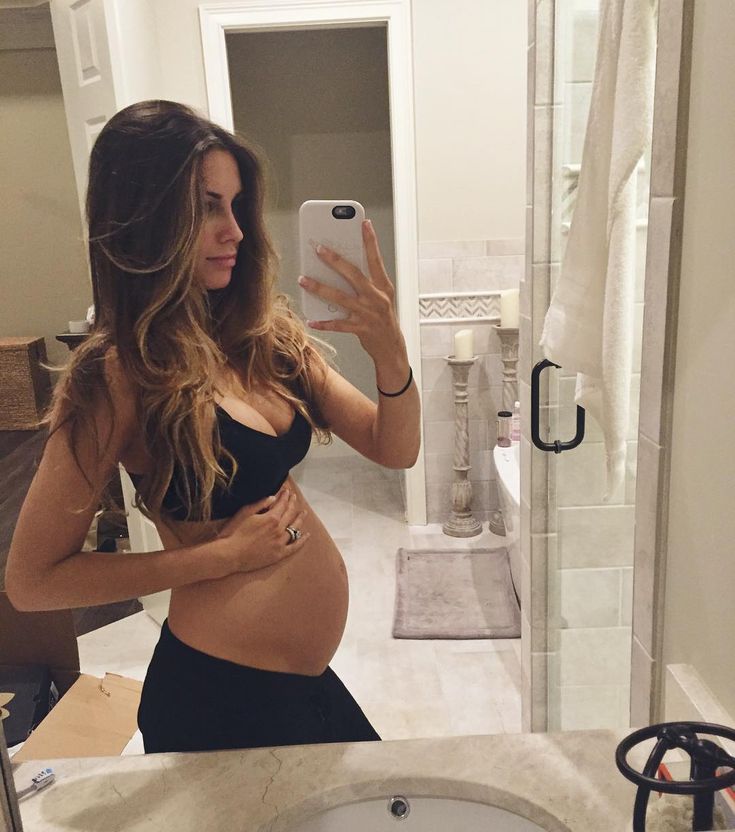
Try experimenting with pillows to find a comfortable sleeping position. Some women place a pillow under their abdomen or between their legs. Also, using a bunched-up pillow or rolled-up blanket at the small of your back may help to relieve some pressure. In fact, you'll see many "pregnancy pillows" on the market. If you're thinking about buying one, talk with your doctor first about which might work for you.
Over-the-counter sleep aids, including herbal remedies, are not recommended for pregnant women.
Instead, these tips may safely improve your chances of getting a good night's sleep:
- Cut out caffeinated drinks like soda, coffee, and tea from your diet as much as possible. Restrict any intake of them to the morning or early afternoon.
- Avoid drinking a lot of fluids or eating a full meal within a few hours of going to bed. (But make sure that you also get plenty of nutrients and liquids throughout the day.) Some women find it helpful to eat more at breakfast and lunch and then have a smaller dinner.
 If nausea keeps you up, try eating a few crackers before you go to bed.
If nausea keeps you up, try eating a few crackers before you go to bed. - Get into a routine of going to bed and waking up at the same time each day.
- Avoid rigorous exercise right before you go to bed. Instead, do something relaxing, like reading a book or having a warm, caffeine-free drink, such as milk with honey or a cup of herbal tea.
- If a leg cramp awakens you, it may help to press your feet hard against the wall or to stand on the leg. Some women find that stretching their calf muscles before bed helps. Also, make sure that you're getting enough calcium and magnesium in your diet, which can help reduce leg cramps. But don't take any supplements without checking with your doctor.
- Take a yoga class or learn other relaxation techniques to help you unwind after a busy day. (Be sure to discuss any new activity or fitness regimen with your doctor first.)
- If fear and anxiety are keeping you awake, consider enrolling in a childbirth class or parenting class.
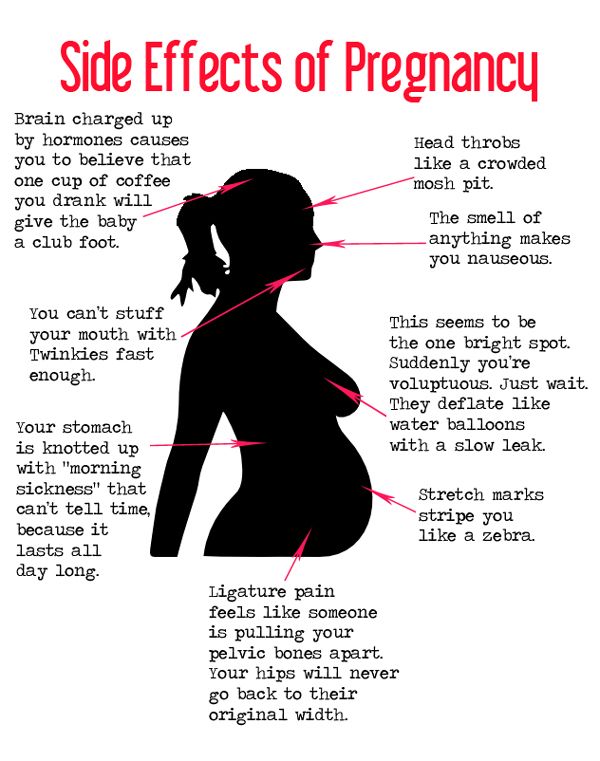 More knowledge and the company of other pregnant women may help to ease the fears that keep you awake at night.
More knowledge and the company of other pregnant women may help to ease the fears that keep you awake at night.
What If I Still Can't Sleep?
Of course, there will be times when you just can't sleep. Instead of tossing and turning, worrying that you're not asleep, and counting the hours until your alarm clock will go off, get up and do something calm: read a book, listen to music, or look at a magazine. Eventually, you'll probably feel tired enough to get back to sleep.
And if possible, take short naps (30–60 minutes) during the day. Naps can help you have energy to get through the day and give your body the rest it needs.
Reviewed by: Larissa Hirsch, MD
Date reviewed: May 2022
How to sleep during pregnancy
It is difficult to overestimate the role of sleep in the life of every person. A complete healthy rest allows you to fully restore the functioning of the nervous system, relieve stress, improve performance and increase activity. Chronic sleep deprivation is the cause of many diseases. What can we say about a woman who is at the stage of bearing a baby. During this period, more than ever, she needs a healthy, long and full sleep. However, unfortunately, it is during this period that one can only dream of a restful sleep.
Chronic sleep deprivation is the cause of many diseases. What can we say about a woman who is at the stage of bearing a baby. During this period, more than ever, she needs a healthy, long and full sleep. However, unfortunately, it is during this period that one can only dream of a restful sleep.
As soon as a woman finds out about her new position, she has to give up a lot for the sake of the health of her unborn baby. And you need to give up not only bad habits: alcohol, cigarettes, coffee, but also from a comfortable sleep.
The cause of insomnia can be :
- Anxiety;
- Frequent urination;
- Fears and phobias before a new stage of one's life;
- Nervousness and irritability;
- Digestive disorder;
- Toxicosis;
- Physical indisposition;
- Uncomfortable posture.
During the period of bearing a child, the female body experiences an extraordinary load, especially in the last trimester. The need for more sleep increases, because the body expends much more energy. Therefore, healthy sleep and pregnancy are inextricably linked.
The need for more sleep increases, because the body expends much more energy. Therefore, healthy sleep and pregnancy are inextricably linked.
As soon as a woman finds out about her new position, she has to give up a lot for the sake of the health of her unborn baby. And you need to give up not only bad habits: alcohol, cigarettes, coffee, but also from a comfortable sleep.
Let's try to figure out how to sleep during pregnancy, so as not only not to harm the health of your unborn baby, but to sleep well.
Looking for a comfortable sleeping position
Each person has his own favorite position, in which it is easy to fall asleep and sleep. Many do not imagine a comfortable rest on their backs, accustomed to sleeping on their stomachs. This habit will have to be sacrificed, as it is unsafe for the normal development of the fetus. If in the first three months of pregnancy a woman can still sleep in the position in which she is used to and feels comfortable, then after the first trimester the growing belly will not allow her to lie safely in this position. Despite the natural protection of the baby in the form of amniotic fluid, there is a high probability of injuring the baby in a dream, squeezing it. But what is the right way to sleep during pregnancy?
Despite the natural protection of the baby in the form of amniotic fluid, there is a high probability of injuring the baby in a dream, squeezing it. But what is the right way to sleep during pregnancy?
Back position
Even if you are used to sleeping in a Spartan position, on your back, with your arms spread wide, from the 28th week you will have to radically change your lifestyle. The fact is that as the fetus grows, the load on the intestines and vena cava will increase significantly, blocking the access of oxygen to the baby.
As soon as a woman finds out about her new position, she has to give up a lot for the sake of the health of her unborn baby. And you need to give up not only bad habits: alcohol, cigarettes, coffee, but also from a comfortable sleep.
If you sleep on your back during pregnancy, you may experience the following problems:
- Dizziness;
- Nausea;
- Convulsions;
- Numb limbs;
- Pressure reduction;
- Hemorrhoids;
- Heaviness of breathing.

If you feel these symptoms or the baby gives persistent signals, you need to urgently change your position, so squeezing the vena cava is fraught not only with poor health for the mother, but also with a lack of oxygen supply to the fetus.
Stomach position
One of the most beloved positions for many people, which allows you to quickly fall asleep while hugging a pillow. Many women, as soon as they find out about the change in their lives, are interested in the question, is it possible to sleep on your stomach during pregnancy? Doctors recommend abandoning this position already in the first weeks, even before the enlarged belly makes it impossible to fall asleep peacefully.
If you are afraid during sleep, without controlling your movements, to arbitrarily roll over on your stomach, you can put a large pillow that does not allow you to change position.
Side position
In order to normalize your sleep and not harm the health of the baby, experts recommend sleeping on your side during pregnancy. And if at first this option seems unacceptable to many, after the second trimester, lying on your side is the only possible one. But here the question arises, on which side to sleep in order to ensure the safety of the fetus?
And if at first this option seems unacceptable to many, after the second trimester, lying on your side is the only possible one. But here the question arises, on which side to sleep in order to ensure the safety of the fetus?
Sleeping on the right side can cause squeezing of the kidney, which can have dire consequences. The ideal posture is lying on the left side. Thus, you not only do not injure the unborn baby, but also improve blood flow along with oxygen to the placenta.
But one should not ignore the individual characteristics of each organism and the position of the fetus in the uterus. When the baby is in a transverse position, choose the side where the baby's head is. And with a breech presentation, doctors recommend changing the position several times a night.
If you still cannot improve your sleep, you feel unwell and you are tormented by insomnia, then it is better to consult a specialist. A good gynecologist will analyze the situation and help solve the problem. If necessary, he will prescribe a safe sedative that stabilizes the emotional state and helps to fall asleep calmly, resting and restoring the nervous system in a dream.
If necessary, he will prescribe a safe sedative that stabilizes the emotional state and helps to fall asleep calmly, resting and restoring the nervous system in a dream.
Help pillow
Fortunately, now modern manufacturers help women survive the pregnancy period with great comfort by offering special pillows. They are made taking into account the physiological characteristics of a woman in this period and allow you to find a comfortable position for relaxation.
You can buy two pillows and put one under your stomach and the other under your knees, looking for your best option. And you can buy a long banana-shaped pillow, which allows you to throw your leg on it while sleeping, which improves well-being and relieves the main load from the lower back and abdomen. Already in the last weeks of pregnancy, when the growing belly does not allow you to breathe normally, the pillow will allow you to take a comfortable half-sitting position.
Remember that pregnancy is your opportunity to gain strength and fully relax before the most crucial period in your life. Childbirth and the first weeks of caring for your baby will require a lot of energy from you, so good luck and sound sleep!
Childbirth and the first weeks of caring for your baby will require a lot of energy from you, so good luck and sound sleep!
How to sleep properly during pregnancy, sleep positions by trimesters
Pregnancy is a period of serious hormonal changes and loads that increase every day. Therefore, a good night's rest at this time is more important than ever for the expectant mother. Without it, both the physical and emotional state will worsen.
It is not surprising that many women are interested in the question, how to sleep properly during pregnancy, so as not to harm the baby, and at the same time create optimal conditions for the full recovery of the body .
How to sleep more comfortably during pregnancy in the 1st trimester
At an early stage, a woman's tummy is still small, so she is allowed to sleep the way she likes. The main thing is that the chosen position is comfortable for her.
The first trimester is the only period during pregnancy when it is permissible to lie and sleep on your stomach without any restrictions. The pelvic bones reliably protect the uterus from excessive pressure.
The pelvic bones reliably protect the uterus from excessive pressure.
How to sleep better during pregnancy in the 2nd trimester
The second trimester is the stage from the fourth to the sixth month of pregnancy or from 14 to 27 obstetric weeks. The belly of a pregnant woman is already becoming noticeable. Every day its circumference increases. The body changes rapidly, so it is not always easy for a woman to find a comfortable position to sleep. Sleeping on your stomach is no longer possible, as you can harm the baby.
Sleeping on the back is prohibited from 20-23 obstetric weeks. This limitation is due to the increase in the weight of the child. While in the uterus, it strongly presses on the inferior vena cava. As a result, the expectant mother, who fell asleep on her back, will face the following problems:
- shortness of breath:
- dizziness;
- sudden drop in blood pressure;
- fainting.
That is why doctors recommend sleeping on your side during pregnancy.
Interestingly, the fetus in the 2nd trimester becomes very active. There is still a lot of space in the uterus, so he moves intensively, flounders. If he does not like the position chosen by his mother, he reports this with rather tangible kicks. A woman must learn to “negotiate” with a child and choose sleeping positions that are comfortable for both of them. You can buy a special pillow for pregnant women, it literally saves many women.
How to sleep during pregnancy in the 3rd trimester: expert advice
Sleeping on your back during pregnancy in the third trimester is unacceptable, as well as in the second. The same goes for sleeping on your stomach. If a woman ignores these restrictions, the probability will increase:
- baby's hypoxia;
- compression of the inferior vena cava;
- frequent dizziness and fainting;
- breech or transverse presentation of a child;
- cord entanglement;
- arterial hypotension;
- limb edema, convulsions;
- back pain.

The only available sleeping position is on the side. However, not everything is simple here either. Scientists have found that the most correct position for sleeping during pregnancy is on the left side.
Why sleep on the left side is preferable
Sleeping on the left side has a number of advantages:
- helps to reduce the load on the circulatory system and internal organs of a woman;
- creates optimal conditions for the full work of the heart;
- prevents the reflux of gastric juice into the esophagus and minimizes the likelihood of heartburn;
- does not interfere with blood circulation in the placenta;
- prevents compression of the inferior vena cava.
Thanks to stable blood flow and normal heart activity, the pregnant woman feels better. The child's condition also remains stable - he does not suffer from hypoxia and nutritional deficiencies.
How much to sleep during pregnancy
For good health, you need not only to sleep in the correct position, but also to ensure that there is no sleep deficit . It is believed that the expectant mother should sleep at least 8-10 hours. That is how much time it takes for the body to recover.
It is believed that the expectant mother should sleep at least 8-10 hours. That is how much time it takes for the body to recover.
If sleepiness bothers you during the day, you need to find extra time for daytime sleep. It is unreasonable to fight the needs of your own body: it knows better what it needs in this difficult period.
Vitamins important for good sleep for the expectant mother
Insomnia during pregnancy is very common. It is far from always associated with the inconvenience caused by a growing belly. With a deficiency of certain vitamins and minerals, the nervous system cannot work normally, the sleep and wakefulness regime is disturbed. Then the pregnant woman cannot fall asleep for a long time in the evening, and wakes up tired and broken in the morning.
A person needs the following vitamins and minerals for good sleep:
- iodine,
- vitamin D3,
- thiamine (B1),
- riboflavin (B2),
- niacin (B3),
- zinc.

When they are lacking, the pregnant woman experiences lethargy, suffers from a breakdown. She does not have time to "charge" with energy overnight. He falls asleep badly, wakes up at the slightest noise, and then again cannot fall asleep for a long time. This negatively affects the general condition of the expectant mother.
This cause of poor sleep should not be brushed aside, since during pregnancy the consumption of certain vitamins and minerals increases several times, such an amount cannot be obtained from food. And most women enter pregnancy already with a deficiency of nutrients, such as iodine.
To prevent beriberi and not suffer from insomnia, you should take vitamin-mineral complexes for pregnant women. Try, for example, Pregnoton Mama. It contains all of the above vitamins in easily digestible forms, is well tolerated by pregnant women and has a high safety profile. It is convenient to take the complex, you only need one capsule per day. More information about Pregnoton Mama can be found here.